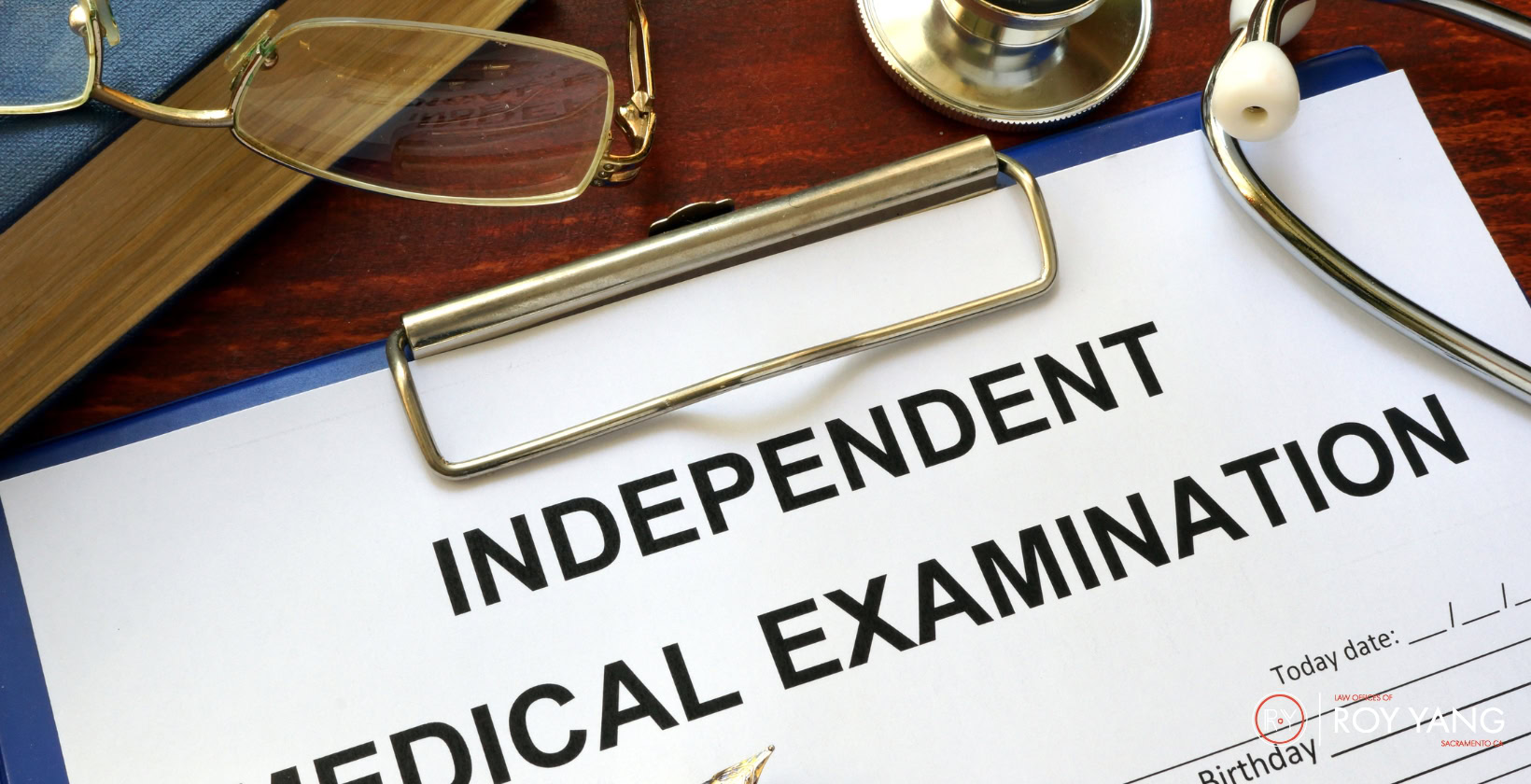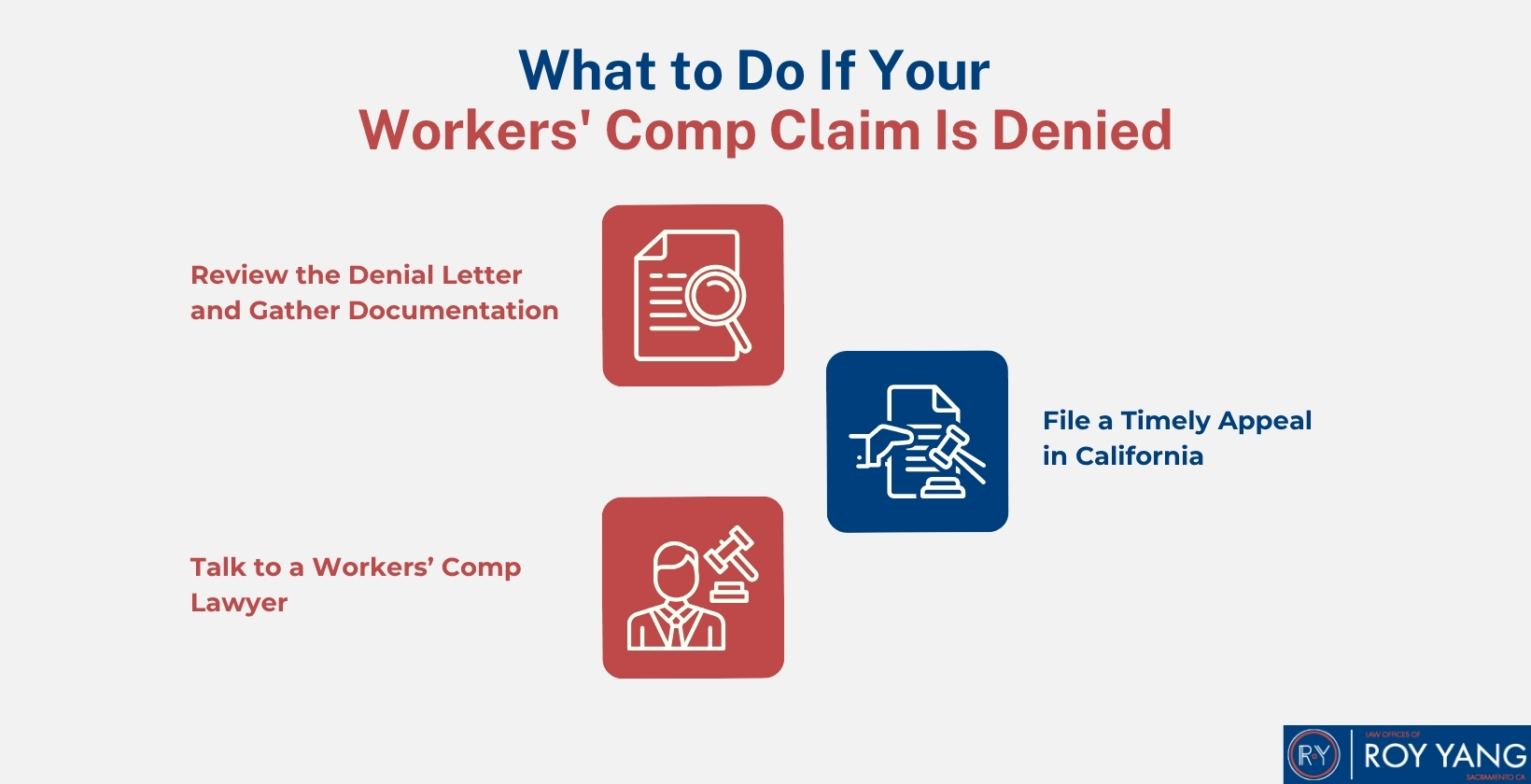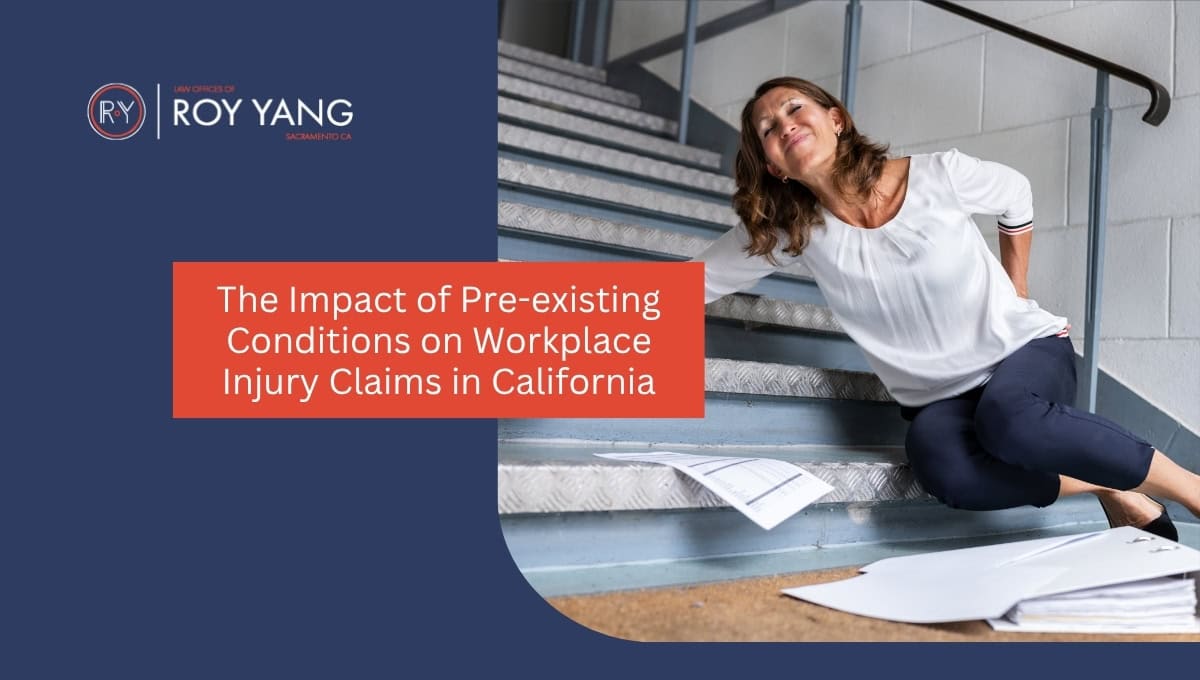You can manage a work-related injury, even with a pre-existing condition. With the right legal support, you can secure the compensation you deserve. Your pre-existing condition will not affect your right to compensation, even if you’re facing medical bills, lost wages, or recovery challenges.
Instead of viewing this as a setback, see it as an opportunity to understand the impact of pre-existing conditions on workplace injury claims. California law is designed to protect your rights and ensure you receive the full compensation you are entitled to, regardless of your medical history.
This guide will help you handle how pre-existing conditions affect your injury claim. It will clarify your legal protections under California law and offer actionable steps to strengthen your case. Make sure you receive the compensation you rightfully deserve.
Key Takeaways
- Pre-existing conditions are covered under California workers’ compensation if work activities aggravate or worsen them.
- Insurers deny claims by attributing symptoms to aging or prior injuries instead of job-related causes.
- Medical and workplace evidence-like doctor reports, job logs, and witness statements, prove aggravation.
- Independent Medical Exams (IMEs) are often biased; workers can challenge them through Qualified Medical Evaluators (QMEs).
- Apportionment rules limit payouts, compensating only for the portion caused by workplace aggravation.
- Legal representation is essential to protect rights, appeal denials, and secure full benefits. Contact the workers’ compensation lawyer for legal help.
Can You Get Workers' Comp with a Pre-existing Condition in California?
Yes, California law allows injured workers to receive workers’ compensation even if they have a pre-existing medical condition as long as the work injury aggravated, accelerated, or worsened that condition.
What Counts as a Pre-existing Condition in Workers’ Comp?
A pre-existing condition is any medical illness, injury, or health issue that you had before the work-related injury occurred. This can include conditions such as, but not limited to:
- Old back, neck, or knee injuries
- Arthritis or degenerative disc disease
- Previous surgeries or chronic conditions
- Carpal tunnel syndrome
- Strains and sprains
- Depression or anxiety
These conditions may have been mild or even symptom-free before the occurrence of a new work-related injury.
When Does a Pre-existing Injury Become Work-Related and Compensable?
When your job duties make your pre-existing condition worse than it was before, it becomes work-related and compensable. California law recognizes this as a valid workplace injury. This includes situations where:
- Your job duties worsen a chronic injury.
- Physical activity at work triggers symptoms of a dormant condition.
- Repetitive tasks or strain speed up the progression of an existing medical issue.
In these cases, your employer is responsible for covering medical bills, lost wages, and related benefits.
Example: If lifting on the job causes a prior back injury to flare up or get more serious, it might count as a new injury under California workers’ comp law.
How Insurance Companies Use Pre-existing Conditions to Deny Claims?
Insurance companies can deny workers’ compensation claims when there is no evidence of a new injury and you’re seeking compensation solely for a pre-existing condition. In such cases, insurers typically assert that the claimed injury or symptoms result from a prior medical issue rather than a workplace incident.
Insurers use your medical history strategically, not just to evaluate the claim but to minimize or deny liability. Understanding how they build this defense is critical to protecting your rights.
Why Insurers Investigate Medical History?
Insurers often investigate your medical records to find alternate causes for your condition and uncover prior injuries. Even if the pre-existing issue never affected your job before, they may still use it to challenge your claim.
Their goal is to identify anything in your medical history that could explain your current symptoms so they can argue that your condition isn’t work-related.
Tactics Used to Deny or Reduce Claims
Here are 3 common strategies insurers use to reduce or reject claims involving pre-existing conditions:
- Blaming Natural Aging or Degeneration: The insurers argue symptoms are due to aging (e.g., arthritis) or degenerative conditions, not a job-related injury.
- Relying on Biased Medical Exams (IMEs): They may hire IME doctors supporting their goal of minimizing work-related findings, leading to skewed reports that favor denial.
- Claiming Symptoms Existed Before the Work Injury: They highlight old injuries or similar symptoms in your history to argue that the current condition is not new or work-related.
How to Prove Your Job Aggravated a Pre-existing Condition?
If you have a pre-existing condition, your employer or their insurance company may try to argue that your current pain or injury isn’t work-related. But under California workers’ compensation law, you’re still entitled to benefits long as you can show that your job aggravated, accelerated, or worsened your condition.
But proving that your workplace aggravated a prior injury or illness requires more than just saying you’re in pain. You need to provide credible, specific evidence that links your job duties to the current state of your health. Here’s how to build a strong case.
What Work-Related Evidence Strengthens Your Case?
To win your case, you must show that something about your job made your condition worse. The following documents help connect the dots between your work activities and the aggravated injury:
- Job Descriptions: Highlight repetitive or physically demanding tasks like lifting, bending, or overhead reaching.
- Incident Reports: Document any specific event or moment when the aggravation occurred.
- Work Schedules or Logs: Demonstrate consistent exposure to high-risk tasks (e.g., prolonged standing, heavy lifting).
- Coworker Statements: Provide witness accounts that support your version of the incident or ongoing symptoms.
These forms of evidence help prove that your condition didn’t just get worse on its own-it got worse because of your job.
What Medical Evidence Is Required to Prove Workplace Aggravation?
Even with strong workplace evidence, medical documentation is the foundation of any workers’ comp claim involving a pre-existing condition. You’ll need a licensed physician to formally support the connection between your job and your worsened condition. Essential medical records include:
- Doctor’s Notes: Clearly stating that your work activities caused a deterioration of your existing injury or illness.
- Imaging Results: X-rays, MRIs, or CT scans showing new or worsened damage compared to past scans (if available).
- Treatment Records: Proof of new treatment such as physical therapy, injections, medications, or surgery.
- Expert Medical Opinions: Statements or depositions that explain how your job duties led to further injury.
The stronger and more specific the medical connection to your work tasks, the harder it is for insurance adjusters to deny your claim.
What Is Aggravation vs. Exacerbation?
It’s important to understand the legal difference between aggravation and exacerbation, as this can determine whether your injury is compensable.
| Criteria | Aggravation | Exacerbation |
|---|---|---|
| Definition | Permanent or lasting worsening of a pre-existing condition | A short-term flare-up with no lasting damage |
| Legal Status | Considered a new compensable injury | Often not compensable under workers’ comp |
| Example | Job causes a herniated disc in a previously injured back | Lifting at work causes temporary back soreness |
In short, if your job permanently worsened your condition, it’s more likely to be covered. If your symptoms returned temporarily but resolved without long-term damage, the claim may be denied.
What to Expect From an Independent Medical Examination (IME)?
Your insurer may identify a lack of evidence and schedule an Independent Medical Examination (IME) as a requirement during your workers’ comp claim process. You can expect the IME to determine your eligibility for a claim.
What Is an IME and Why Do Insurers Order It?
An IME is a medical evaluation arranged by the insurance company and performed by a non-treating doctor. Insurers order IME to look for signs of a pre-existing condition or non-work-related cause and challenge the injury’s compensation eligibility. The IME doctor assesses your condition, reviews your records, and reports findings to the insurer. The IME report heavily influences your claim’s approval or reduction.
Remember that IME doctors are hired by your insurer, and being scheduled for an IME may be a sign that your insurer is looking for reasons to deny or reduce your workers’ comp benefits.

How to Prepare for Your IME Appointment?
IME is a pivotal moment in any workers’ compensation case. Insurers often lean on the IME report to limit or deny benefits, so going in well‑prepared is your best safeguard.
Before the Examination
| What to Do | Why It Matters |
|---|---|
| Review your entire medical timeline, including the date of injury, treatments, and pain levels. | Consistency between your memory and medical records builds credibility. |
| Rehearse your accident story in clear, chronological order. | A concise, confident account prevents contradictions the insurer can exploit. |
| Consult with your workers' compensation attorney in advance. | They can explain what to expect, send missing records to the doctor, and outline questions you can decline. |
| Arrange a witness or take notes immediately afterward. | A companion (where allowed) or post‑exam notes preserve details in case the report is inaccurate. |
During the Examination
- Answer Honestly and Briefly. Stick to facts-no guessing, exaggerating, or minimizing.
- Demonstrate Limitations without Dramatizing. If a motion hurts, say so and stop; don’t push through pain or stage extra discomfort.
- Expect a Full‑Body Check. Even localized injuries may involve assessments of posture, gait, or reflexes. Cooperate respectfully.
After the Examination
| Step | Purpose |
|---|---|
| Write a same‑day summary (time in/out, tests performed, doctor’s remarks). | Preserves evidence if you need to challenge the IME findings. |
| Report any concerns to your attorney immediately. | Rushed exam? Hostile questions? These details can justify a second opinion. |
| Request a copy of the IME report as soon as it’s filed. | California law lets you review for errors and discrepancies before the insurer relies on it. |
What If You Disagree With the IME Results?
If you believe the IME report is inaccurate, incomplete, or unfair, you have legal options, and you should act quickly.
Under California workers’ compensation law, you have the right to request a Qualified Medical Evaluator (QME) for a second, impartial opinion. A QME is a licensed physician certified by the state to evaluate work-related injuries and provide a formal medical-legal report that can carry significant weight in your claim.
Because the QME process is highly regulated and can directly impact your benefits, it’s essential to:
- Act within the deadline to request a QME panel (usually 10 days if you’re unrepresented).
- Consult a workers’ compensation attorney before selecting or responding to a QME. They can ensure you receive a fair evaluation, prepare your case properly, and challenge any flawed IME findings.
Disagreeing with the IME doesn’t mean your claim is over. It means it’s time to take control of the next step with the legal tools California law provides.
What to Do If Your Workers' Comp Claim Is Denied ?
A workers’ comp claim denial isn’t the end; it is a fixable situation. Timely response, documentation, and appeal can improve the claim outcome.
Here are 3 steps to follow when your workers’ comp claim is denied:
1. Review the Denial Letter and Gather Documentation
Start by carefully reviewing your denial letter. What’s written there can shape your next steps. Check the letter for:
- Reason for denial
- Date of denial
- Descriptions of the damage and timelines
- Any missing documents, medical reports, or evidence
- Any medical opinions or reports used to justify the denial
To prepare for a workers’ compensation appeal or a QME process, gather documents such as:
- The IME report
- Claim records and the denial letter itself
- Missing medical records
- Work-related documents
2. File a Timely Appeal in California
Your next step following the denial letter review and documentation is to file a workers’ compensation appeal to the Workers’ Compensation Appeals Board (WCAB). Here’s what to do:
- Submit your appeal according to the state procedures.
- Practice your testimony if a hearing is needed.
- Meet all the deadlines.
Tip: Qualified Medical Evaluator (QME) disputes or Utilization Review (UR) denials have different timelines-often 10 to 30 days. Respond quickly.
3. Talk to a Workers’ Comp Lawyer
The workers’ comp system is complex, and insurance companies use that to their advantage. A workers’ comp lawyer guides you to avoid critical mistakes and fight back when your claim is unfairly denied. Talk to a workers’ comp lawyer if:
- You disagree with your IME results.
- Your condition involves a complex medical history.
- You’re nearing a deadline and haven’t filed.
A workers’ comp lawyer challenges the denial, manages strict legal deadlines, prepares strong medical and legal evidence, and negotiates fair settlements.

How a Pre-existing Condition Can Affect the Benefits You Receive?
If you have a pre-existing condition or injury affecting the same body part, your benefits may be adjusted even if your claim is approved. The amount of compensation can be reduced depending on how much of your condition is attributed to your prior injury.
Let’s break down how this works:
Will You Still Get Full Benefits if You Had a Prior Injury?
Not always. The amount of benefit you get depends on the severity of the current injury and the effect of the prior injury on it. If a physician finds that part of your current condition stems from a previous injury, they will apportion your benefits accordingly.
For example, if a doctor determines that 30% of your disability is due to a past back surgery and 70% is from your current work injury, you’ll receive compensation for only the 70% that’s work-related.
Can My Disability Rating Be Lower Because of a Pre-existing Condition?
Yes. Your disability rating, which affects how much compensation you receive, can be reduced if part of your impairment existed before the workplace incident. During the medical evaluation, the doctor assigns percentages to show how much of your disability is work-related versus pre-existing.
However, if your prior condition never affected your ability to work, you may be able to argue that the new injury is the main reason for your current disability.
Do I Still Qualify for Permanent Benefits If the Old Injury Got Worse?
Yes, you may qualify for permanent disability benefits if your old injury has gotten worse, but only if your current work activity has measurably aggravated the pre-existing condition and caused some degree of permanent partial or permanent total disability.
Here’s how Permanent Partial Disability (PPD) compares to Permanent Total Disability (PTD) after aggravation of a pre-existing condition:
| Criteria | PPD | PTD |
|---|---|---|
| Impact of Aggravation | Aggravation causes lasting impairment, but not total disability | Aggravation results in a total loss of work capacity and earning ability |
| Compensation based on | Disability rating and affected body part | Complete loss of earning capacity |
| Example | A factory worker suffers a crush injury and loses full function of their dominant hand. They cannot return to assembly line work but can still perform light clerical tasks. | An electrician suffers an electrical explosion and is permanently blinded. Due to the severity and impact on daily function, they are unable to work in any capacity. |
How a Workers’ Comp Lawyer Helps with Complex Medical Claims?
Having a workers’ comp lawyer with legal experience improves your case outcome significantly, especially when it involves complex medical claims.
Why Legal Experience Matters in Complex Medical Claims?
Medical records alone won’t secure workers’ comp benefits in California. You must prove that your job aggravated your pre-existing condition beyond its normal progression.
Insurance companies don’t pay based on symptoms; they pay when there’s clear proof that ties your condition directly to your work. That proof must meet specific standards under California workers’ comp law.
An experienced lawyer can meet these legal standards in your case. They translate your medical and work evidence into legal arguments so your injury is recognized as compensable.

How Law Office of Roy Yang Supports Injured Workers with Complex Claims?
Getting injured at work is hard enough, but dealing with claim denials and delays makes it even more overwhelming. The law offices of Roy Yang are dedicated to providing strategic representation for California workers whose cases involve complex pre-existing injuries or chronic conditions.
With over 15+ years of experience in workers’ compensation law, Roy Yang and his team turn detailed medical evidence into persuasive legal arguments that stand up under scrutiny.
What to expect from us:
- Dedicated case Evaluation and Free Consultation: We review every case personally and offer honest, actionable guidance from the start.
- Strategic Handling of Pre-existing Condition Claims: We help prove aggravation and build compelling evidence for appeal
- Timely, Aggressive Appeals of Denied or Delayed Claims: From filing to formal hearing, we move quickly to protect your benefits.
- Protection Against Insurance Company Tactics: We’re familiar with insurers using medical history against you, and we counter those efforts with facts and law.
- Strong Representation in Settlement Negotiations or Trial: Whether at the negotiating table or in the courtroom, we advocate for your maximum recovery.
The Law Offices of Roy Yang stands with injured workers in Sacramento, Stockton, Roseville, Folsom, Oakland, and all of Northern California. We’re ready to fight for the full benefits you’re owed under California law.
Got a case? Contact us today to schedule your free case review.
What Is a Workers’ Comp Claim in California?
A workers’ comp claim in California is a legal request an employee files to receive compensation after suffering a job-related injury or illness. All employees qualify to receive workers’ compensation in case their job causes an injury or aggravates an existing condition.
What Workers’ Comp Benefits Are Available?
In situations where the job-related injury is legally proven and compensated, workers are qualified to receive workers’ compensation benefits such as:
- Medical expenses for the injury treatment
- Temporary disability wage replacement
- Permanent disability compensation
- Death benefits to the family of the deceased
How Do You Know If Your Injury Is Work-Related?
To determine if your injury qualifies as work-related and is eligible for workers’ compensation, ask yourself:
- Location: Did the injury occur at your workplace?
- Timing: Did the injury happen during your work hours?
- Job Duties: Were you performing tasks required by your job?
Example: Hurting your shoulder while lifting boxes at work is a work-related injury and is compensable.
FAQs About Workers’ Compensation and Pre-existing Conditions in California
Will my claim be denied automatically because of an old injury?
No. The claim will be approved if your work-related activity aggravates or worsens a pre-existing condition.
What if i did not know i had a medical condition before the injury?
You’re compensated even if you did not know about the medical condition before the injury. Unknown conditions qualify as compensable injury.
Does the insurance company have access to all my medical records?
Yes, they have the right to access relevant medical records, especially those related to your injury.
Should I mention my past medical history when filing a claim?
Yes, you should mention your past medical history. Hiding can result in the denial of your claim on the grounds of fraud or misrepresentation.
Final Thought: You Deserve Justice, Even with a Pre-existing Condition
Having a medical history doesn’t automatically disqualify you from workers’ compensation. You are entitled to fair compensation if your job worsened your pre-existing condition. Insurers may use your medical history to delay or deny your claim, but the law allows you to fight back and win. You don’t have to face the system alone.
Take the first step toward securing the compensation you deserve. Call (888) 417-7963 an experienced workers’ compensation lawyer today to protect your rights and ensure justice is served.



